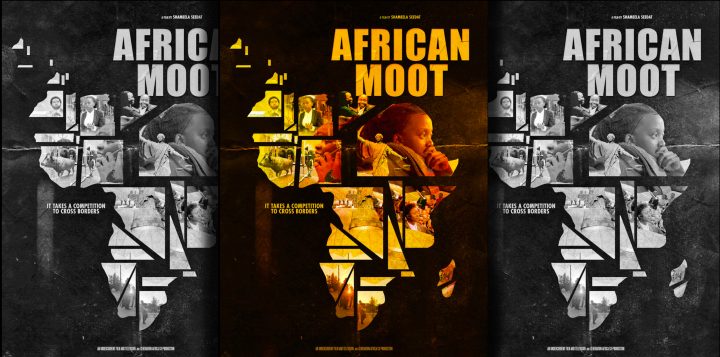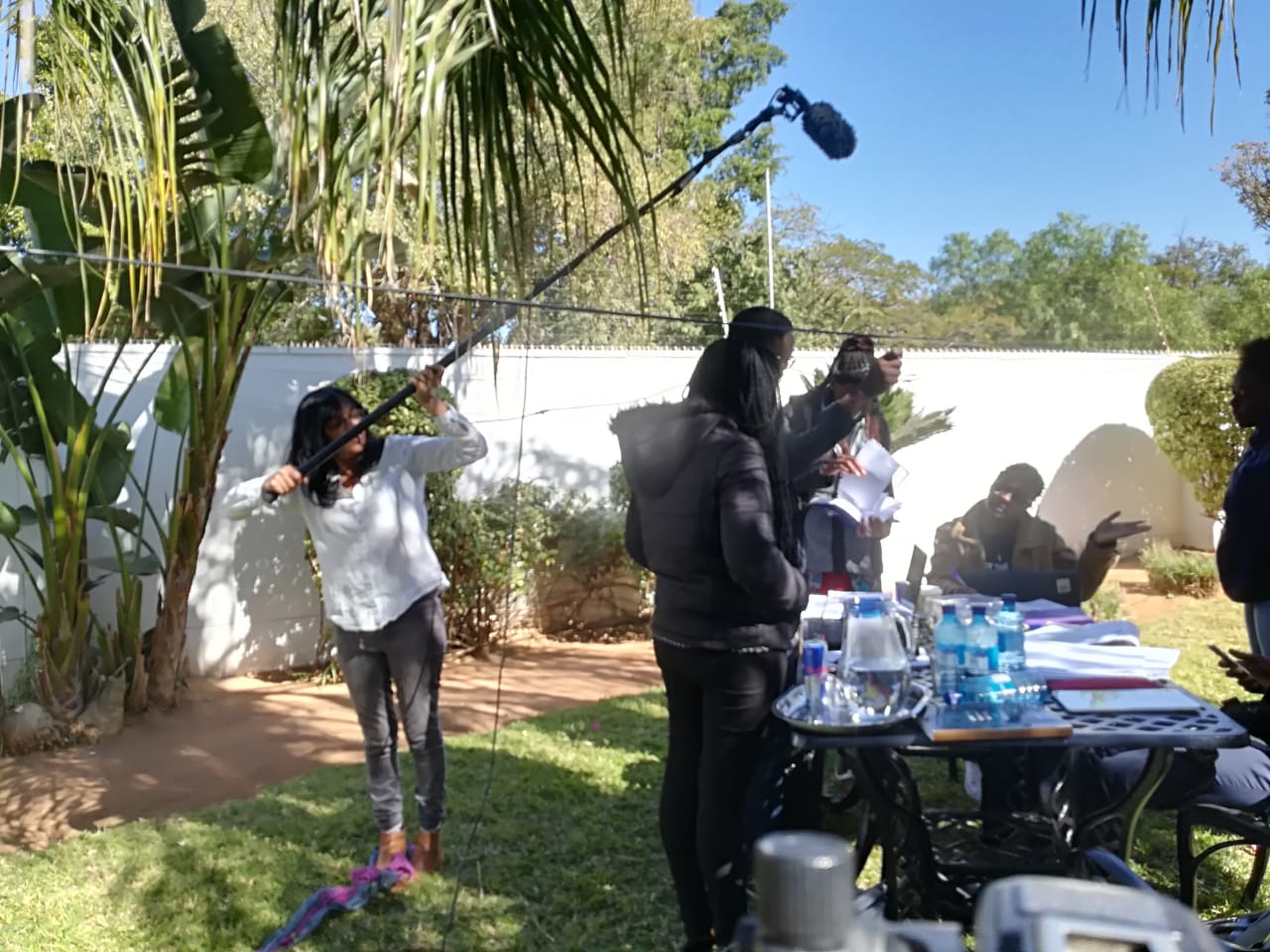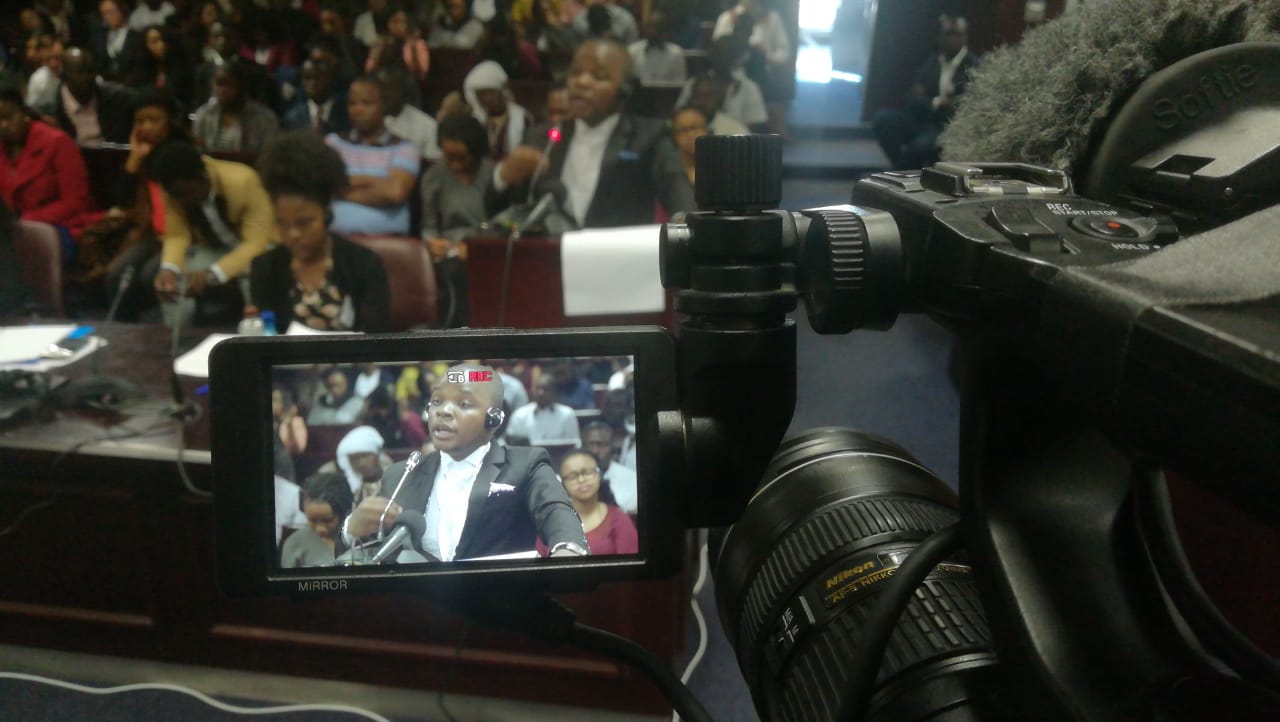MATTERS OF OBSESSION
Shameela Seedat: Whispering truth to films

Before turning to documentary film-making, Shameela Seedat worked in the law and advocacy arena. This sense of political and social consciousness comes through in her work – her ability to transport the complex debates framing our discussions about creating a different kind of social order, onto the screen.
Shameela Seedat is a small hotbed of huge ideas.
She is the powerhouse behind the film, Whispering Truth to Power, which won several international awards, including the Special Jury Award at the Hot Docs International Film Festival in Canada.
The film started as a joint initiative between Johannesburg-based production company, Fireworx Media, and Shameela and her husband, Francois Verster.
It is skin-crawlingly commanding in both its cinematography and its portrayal of Thuli Madonsela as a torch-bearer for truth and justice.
We are pulled back into the darkest days of State Capture, to the time just before Thuli Madonsela left office as Public Protector.
“As we shot the film, there were several significant events taking place in the political terrain – the State Capture investigation, the fees must fall protests and the greater focus on land ownership and the calls for redress,” says Shameela.
“Amazing work was being done by investigative journalists unearthing the extensive collusion between private entities and the state, and the growing influence of fake news and alternative facts.”
The film takes us behind the scenes of ordinary days in Madonsela’s life – juggling her work and her role as a mother, plus her life outside the office.
“We wanted to explore a woman in public office as a lawyer, activist, mother, boss, public hero – confronting the abuse of power at the highest levels,” says Shameela.
“But we also wanted the film to reflect on the broader issues in our country – such as race, inequality and landlessness. So it was important that the film dealt with the critical issue of corruption while also taking stock of the other fault-lines in our society in a visceral way.”
And the film did exactly that – watching it is like scratching at the scab of a deep wound, one that we all carry collectively and are keen to heal and walk away from. But it’s a wound that we have to look at from time to time, lest we forget.
She emerges as a person who stood her ground, resolute in her beliefs and willing to back this up with action – a game changer for accountability
After the film was released, Shameela was anxious about the response because it touched on such sensitive issues. But also because it tried to ‘unpack’ Thuli Madonsela, considered by many to be an enigma.
The response to it was so much more than she had anticipated – it went on to win many awards and was the opening act at several film festivals.
And here’s the thing – in a time when we are increasingly despondent about people in positions of power; when there is growing greed, conservatism, fascism and self-focus among leaders across the globe, Thuli Madonsela resonates with many people.
Both in and beyond our borders, she emerges as a person who stood her ground, resolute in her beliefs and willing to back this up with action – a game-changer for accountability.
The success of the film has meant that audiences around the world continue to engage with it.
Before turning to documentary film-making about ten years ago, Shameela worked in the law and advocacy arena. This sense of political and social consciousness comes through in her work – her ability to transport the complex debates framing our discussions about creating a different kind of social order, onto the screen.
Her work triggers a response to how we think about challenging social inequity.
“I tend to follow my instincts with regard to the story, emotion and ideas best suited to a particular project,” says Shameela, “And I keep asking myself whether the characters involved would find it worthwhile themselves to watch the film.”
Her new film, African Moot, also weaves this thread of social consciousness.
It is a deep dive into contemporary issues framing political and social debates on the African continent.
The film follows young law students from different parts of the continent who compete in a mock human rights court case competition. The competition is one with high stakes, bringing together over a hundred young, dynamic law students.

‘African Moot’ behind-the-scenes images by Shameela Seedat (Image supplied)

‘African Moot’ behind-the-scenes images by Shameela Seedat (Image supplied)

‘African Moot’ behind-the-scenes images by Shameela Seedat (Image supplied)

‘African Moot’ behind-the-scenes images by Shameela Seedat (Image supplied)

‘African Moot’ behind-the-scenes images by Shameela Seedat (Image supplied)
The participants spend time preparing in their home countries before coming together in Gaborone to compete in several competition rounds for the prestigious “best team” and “best oralist” prize.
The film activates the part of our brain that gets some of us in a tizz – issues such as landlessness, statelessness, the rights of migrants and asylum seekers and the intersection between this and race, identity and sexual orientation
The theme chosen for the debate reflects challenges facing the continent. This year it centred on migration, refugees, the rights of LGBTIQ+ asylum seekers and xenophobia.
The aim is to get young people thinking about these issues with a view to co-operative action.
The film activates the part of our brain that gets some of us in a tizz – issues such as landlessness, statelessness, the rights of migrants and asylum seekers, and the intersection between this and race, identity and sexual orientation. The stuff that has led to blood being shed.
The stuff that tomorrow’s leaders have to think about differently to create a different kind of world, based on unquestioned respect for human rights.
But the film does so much more than that.
It pulls us into the stories of young people having the debate, interweaving a human story with a political documentary.
“At the heart of the film, we experience the motivations, ideas, inner and outer conflicts, hopes and dreams of the characters,” says Shameela.
The film showcases the human drama entwined in all of us – competing for trophies, wanting to shine, dealing with diverging views, needing to make a difference.
African Moot brings together a diverse group of opinionated and vibrant students – feminists, traditionalists, Pan-Africanists, marginalised identities, all of whom have to navigate their way both through what connects them to each other, but also to that which pulls them apart.
“I’m hoping the film will provide an important perspective on migration-related issues as well as the limitations and benefits of law, the tension between migration and the pan African dream, and that it will give insights into African identities,” says Shameela.
While Shameela came to making documentary films later in life, it is an integral part of who she is.
“I’ve learnt that along the way there will be failure, disappointment and lots of uncertainty, but it is always worthwhile.
“Film-making is collaborative and what is important to me is working with and engaging passionate people who are there for the long haul.”
Shameela’s passion leaps off the screen towards us in anti-gravity boots and touches the places in our hearts and minds where we must engage with how we all live differently, together. DM/ML
African Moot is produced by the Undercurrent Film and Television and co-produced by Steps Generation Africa.

















 Become an Insider
Become an Insider
Comments - Please login in order to comment.